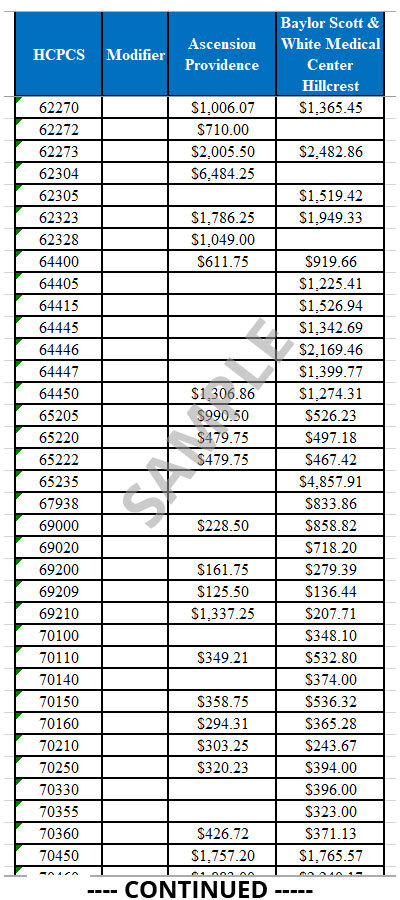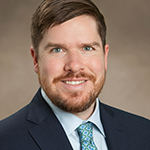Authors
The 2019 Texas Legislature passed House Bill 1941, “An Act relating to unconscionable prices charged by facilities for medical care.” This law took effect September 1, 2019. It defines “unconscionable charges” as charges by a freestanding emergency department (FSED) that equal or exceed 200% of the average charge for the same or substantially similar services provided by local hospital emergency departments.
The Attorney General is responsible to enforce the statute. The bill did not create a private right of action. As of December 2022, the Consumer Protection Division had filed no cases related to HB1941.[1]
RPC can help FSEDs set their charges below the threshold. RPC can calculate the charge threshold for each FSED using the most recent hospital charge data from the Department of State Health Services (DSHS). For each FSED RPC can:
- Obtain the location and the chargemaster for the FSED;
- Identify relevant hospitals for the comparison;
- Calculate the average charge for each hospital for each CPT and HCPCS code in the FSED’s chargemaster, using the most recent 12 months of data from DSHS;
- Adjust hospital charges for inflation, using data from the US Bureau of Labor Statistics;
- Identify any FSED charges by CPT and HCPCS code at or above 200% of the average hospital charges (the “unconscionable price”);
- Provide the FSED with a report of the results for each chargemaster item and documentation of RPC’s sources and methods.
FSED Reports
Each quarter, RPC prepares a report for each county in Texas. Each county report lists the relevant hospitals as defined by the statute and each hospital’s average charge by CPT and HCPCS code. Every Texas county with a hospital ED is available for purchase.
Annually RPC prepares a report of charges for all Texas FSEDs. This single pdf report lists every FSED, broken out by “hospital affiliated” and “non-affiliated”, and each FSED’s average billed charge for each CPT and HCPCS code.
Sample FSED report for a Texas county.

Payment Disputes Involving FSEDs
Whether a FSED is in-network or out-of-network, RPC can help FSEDs resolve payment disputes with health plans. RPC can also help providers and health plans resolve in-network payment disputes involving freestanding emergency centers when parties disagree about payment required by the provider agreement. For in-network claims, the Texas Prompt Pay Act allows providers to be paid full charges, penalties, and interest when health plans do not pay the negotiated rate, or dot not pay promptly or correctly. RPC can calculate amounts owed the provider under the Prompt Pay Act.
Senate Bill 1264 covers freestanding emergency centers and their physicians. Beginning in 2020, their out-of-network payment disputes are subject to the mediation for the facility and arbitration for the physicians if billed separately. RPC can help providers and health plans determine reasonable payment for services under the criteria in the Act.
[1] Open records request to the Texas Attorney General.
Please contact RPC or authors to discover how we can help you. 512-371-8000


